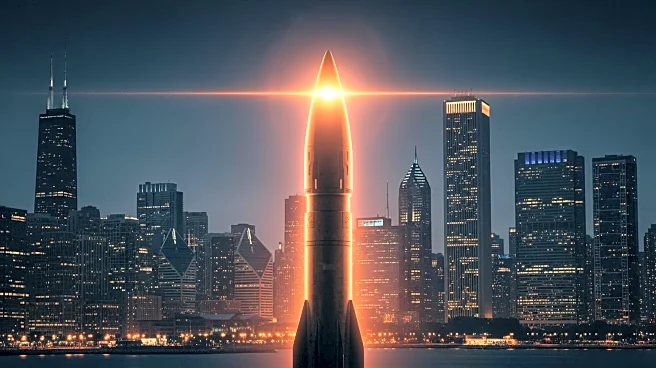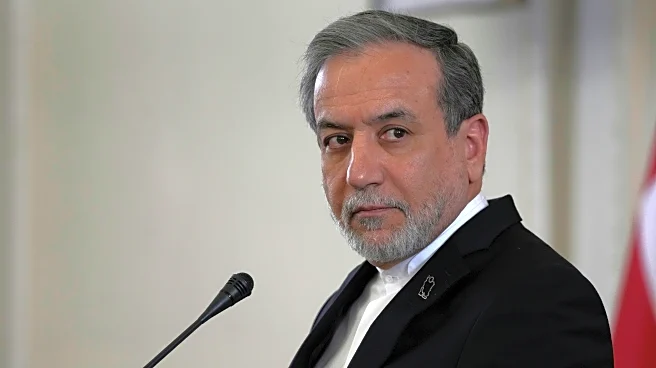What's Happening?
Kathryn Bigelow's new Netflix film, 'A House of Dynamite,' explores the scenario of a nuclear missile targeting Chicago. The film presents a fictional narrative where national security and military experts, along with the president, have only 19 minutes
to decide whether to intercept the missile or retaliate. The movie ends before the missile's impact, leaving the outcome unresolved. The film draws attention to the real-world Doomsday Clock, maintained by the Bulletin of the Atomic Scientists, which symbolizes the proximity of global catastrophe. Currently set at 89 seconds to midnight, the clock reflects threats from nuclear weapons, climate change, and other global risks. The film's portrayal of nuclear threats is critiqued by experts like Daniel Holz and Alexandra Bell, who emphasize the real dangers and complexities of nuclear warfare.
Why It's Important?
The film underscores the persistent threat of nuclear weapons, a concern that has been somewhat sidelined since the end of the Cold War. By depicting a nuclear attack on Chicago, the film serves as a stark reminder of the catastrophic potential of nuclear weapons. Experts argue that Hollywood often misrepresents nuclear issues, but 'A House of Dynamite' brings the conversation back to the forefront. The film's release coincides with a critical period as the New START treaty, the last remaining nuclear arms control agreement between the U.S. and Russia, is set to expire. Without renewal, the world could face an unrestrained nuclear arms race. The film also highlights the role of artificial intelligence in military decision-making, raising concerns about the reliability of AI in crisis situations.
What's Next?
The expiration of the New START treaty in February poses a significant challenge, as it could lead to an unregulated nuclear arms race. The film's release may prompt renewed public and political discourse on nuclear disarmament and arms control. Experts like Holz and Bell stress the need for international cooperation to mitigate nuclear threats. The film could influence policymakers to prioritize nuclear risk reduction and consider the implications of emerging technologies like AI in military strategies. As the global geopolitical landscape evolves, the film serves as a catalyst for discussions on maintaining strategic stability and preventing nuclear escalation.
Beyond the Headlines
The film's narrative raises ethical and existential questions about the use of nuclear weapons and the decision-making processes involved. It highlights the potential for human error and miscommunication in high-stakes situations, drawing parallels to historical events like the Cuban Missile Crisis. The integration of AI in military systems adds another layer of complexity, as AI's fallibility could lead to catastrophic outcomes. The film also reflects on the cultural and psychological impacts of living under the constant threat of nuclear war, a reality that many have become desensitized to over time.
















